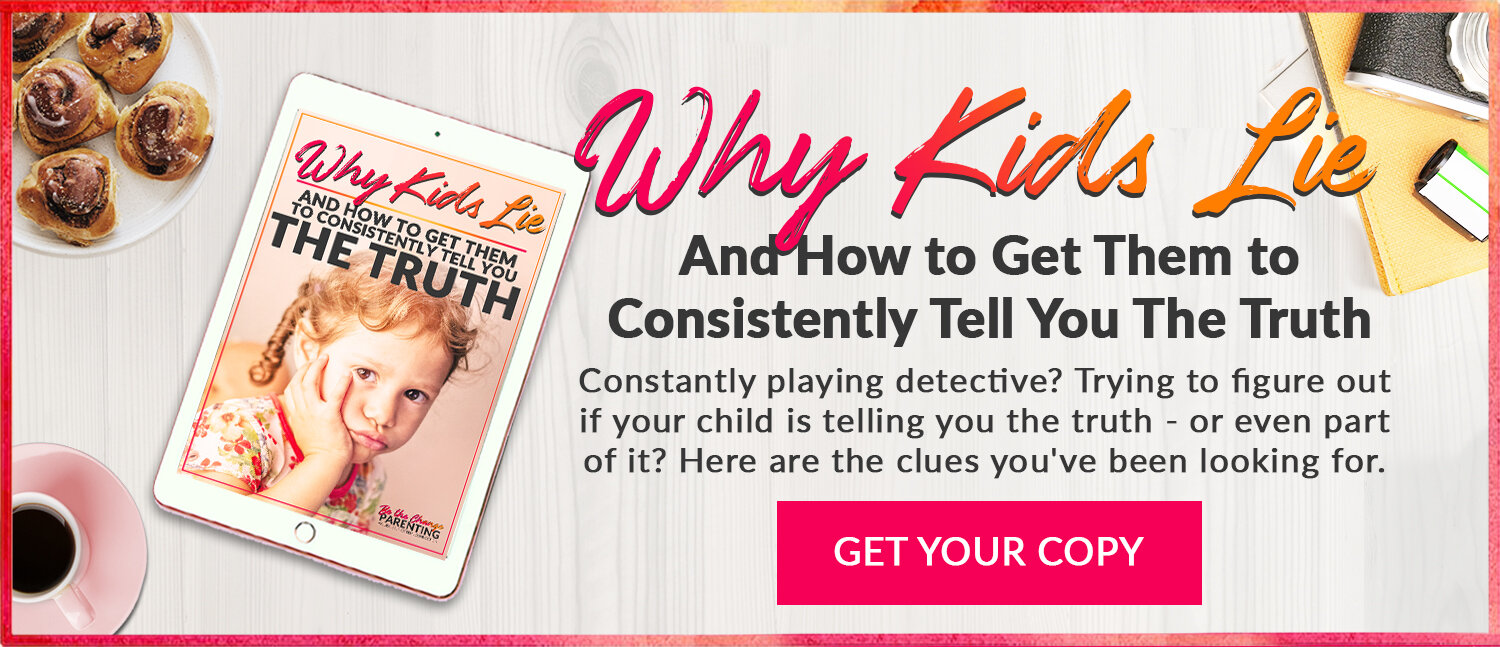8 things NOT to do to get your kid to stop lying
Think of all the times in your life you have lied. What did your parents say? Which reactions did you appreciate and helped you open up and tell the truth the next time?
Which responses had the absolute opposite effect?
What about now, when you are the one parenting? And you’re on your ever present quest to teach moral values for kids of every age in your home. What responses have been effective for lying?
Here are 8 things that will NOT help you to get your kids to stop lying:
1.’I am So Disappointed!’
She knows you’re disappointed. The minute she realized that you caught her in a lie – she could feel the disappointment oozing from your face. But voicing that disappointment is just going to get her back up and that will lead into an argument and possibly voices escalated and nothing good will come from that.
Instead, lend a listening ear, show empathy and express your understanding.
2. React Right Away
So often, in our parenting, we feel like we need to react right away - have a response right away, a consequence right away and a solution to every problem right away.
Take the time to cool down before you do anything and to THINK. You want to know why your child is lying and then you can come up with a plan of action for how to handle it. Same for the misdeed, if there was one. Don’t ever let your frustration convince you that you need to react right now.
Wait until your anger passes and then you can see more clearly.
☞ If you like this post, you will love: How to Create a Safe Haven for Telling the Truth
3. Soap
‘I’m gonna wash your mouth out with soap.’
NO! Really not a good idea. Just no.
This is worse than a spanking and your child will remember it for ever after. It will just get them even angrier with you and will not accomplish anything positive.
Don’t know who came up with this idea, or in which century, but I don’t think their kids liked them very much!
4. Liar!
Do not label your child a liar! When you label your child they tend to live up to name given to them. It becomes a subconscious belief ‘I am a liar’ and then the subconscious mind seeks to fulfill this belief.
You might be tempted to call your child a liar – to bring across a point – ‘what you did was BAD!’ But resist the temptation and instead do the opposite. Label them the opposite and reassure that this was just a mistake, or his better judgement was temporarily clouded.
‘You are an honest person. You were just in a tight spot and made a slip. You’ll do better next time. I’m sure of it.’
☞ If you like this post, you will love: How to Detect a Child’s Lie in Just Seconds
5. Get Angry
She should know how angry I am about this! She NEEDS to know how bad this is!
While these may be your thoughts – they shouldn’t be your words…
Your child most probably knows that you’re angry and disappointed - whether she shows it or not. But anger is not the way to get her to open up and tell you what’s on her heart, not is it the way to teach her a better way than lying.
Anger usually only brings distance, not connection.
Interestingly enough, in Parenting Healthy Babies’ article, 11 Things to Do When Your Child Lies, they say that ‘many children lie to avoid anger and not to avoid punishment.’
If you’re looking for some great anger management techniques then join my free course, Anger Management for Parents and join the ranks of parents who are making it their mission to make sure that calm and composure reign in their homes.
☞ If you like this post, you will love: Why Kids Lie and What You Can Do to Stop It
6. Get Emotional
‘I can’t believe she’s doing this to me!’ – can be a very real feeling that is normal because you feel hurt.
‘How can my child not trust me? How can she purposely deceive me? Doesn’t she think about my feelings?’
As much as these emotions are normal for you feel, they will not help you resolve anything. By all means, feel your emotions – don’t bottle them up! But do so in your own space and when you’ve recovered then you can start to think clearly.
Also remember that kids are busy in their own worlds, and they don’t always think about how their actions will affect those around them, teens included. Whatever they’re going through, it’s often not about you, so don’t take it personally.
7. Ignore
If you think the problem is going to solve itself – it most probably won’t. Definitely something you want to put in the box called – ‘need to work on this issue’ – rather than the ‘ignore’ box.
8. Punish Double
Your child may very well have lied to you because he’s afraid of the punishment he fears he’ll get for his misdeed – and now you’re going to give it to him double? One punishment for the misdeed and one for the lie.
Not the best way to encourage him to tell you the truth next time. Agree?
What do I do when they lie?
Ok, so now I know what not to do. But what do I do?
Check out Why Kids Lie and What You Can Do to Stop It as well as How to Create a Safe Haven for Telling the Truth to learn more.
Or jump straight into my eBook: Why Kids Lie & How to Get Them to Consistently Tell You the Truth … which gives you all the strategies you’ll need to end the fibs, lies and whoopers! Trust me I know what it’s like to constantly be playing detective trying to figure out if your child is telling the truth or not. I’m thrilled to be able to give you the clues you’ve been looking for.





